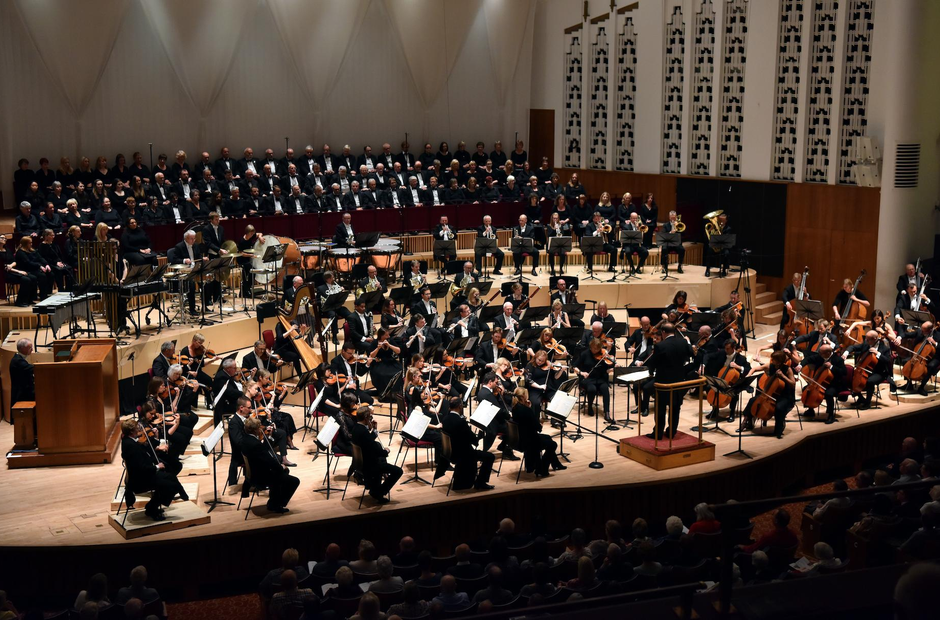Beethoven Symphony No.4
Beethoven Missa Solemnis
While Beethoven’s Fourth is one of his lesser known symphonies, this may be due to it being overshadowed by the towering achievements that are the Third (Eroica) and the Fifth, both of which moved the symphonic form forward and away from previous masters, such as Haydn, but is in no way due to a lack of intrinsic musical merit, as shown so clearly in this performance by the RLPO, led by Andrew Manze. Here used as a counterbalance to the much weightier Missa Solemnis, the Fourth has a charm of its own. The symphony is light-hearted rather than lightweight, and Manze leads the pared down orchestra with delicate control throughout. Despite the slow and suspenseful introduction, the piece quickly moves to a livelier tone of dramatic dynamic contrasts and playful interplay between the violins, woodwind, and double basses, where the range of the orchestra is shown to full effect, with some particularly beautiful playing from the clarinet and the flute.
After the interval, the tone changed, with the choir and soloists performing the Missa Solemnis. Beethoven’s compositions frequently show his desire to overcome the constraints of the traditional forms, and with his Missa Solemnis, he combines the styles of church and concert music, marrying the sacred nature of church music with the force of the symphonic form.
By the time it was finally completed in 1823, the piece had developed into a very personal exploration of Beethoven’s beliefs not only on religion but on life in general, on the conflict between man’s spirituality and humanity as well as the conflict between the existence of a benevolent and omnipotent deity and the suffering Beethoven saw all around him as war raged as well as his own personal anguish and his deafness.
This anguish and conflict are conveyed on many levels throughout this setting of the mass, which is both technically challenging and emotionally demanding for the soloists, the choir, the orchestra and, indeed, the conductor, who needs to bring it all together and find balance between the different elements. While difficult to highlight specific performances, like the clarinet and the flute in the 4th symphony, here, the exceptional quality of the violin solo in the Sanctus was a reminder of the immense talent on display Similarly, the choir, who despite being volunteers, consistently perform on a level that equals or even exceeds that of professional choirs, once again excelled, and in combination with the soloists (Sarah Wegener soprano, Marianne Beate Kielland mezzo-soprano, Steve Davislim tenor, and Johannes Weisser bass) gave a performance full of emotion and depth, conveying a deep sense of spirituality and wonderment as well as the uncertainty and struggles inherent in belief. A remarkable achievement and a deeply moving experience.
Reviewer: Johanna Roberts
Reviewed: 15th February 2020
North West End UK Rating: ★★★★★


